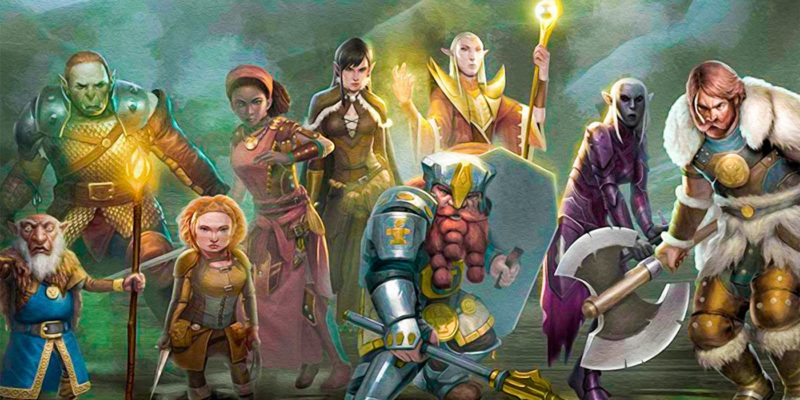
[ad_1]
Dungeons & Dragons’ use of the term “race” creates uncomfortable and unnecessary real-world parallels. Using an alternate would be a big improvement.
There are few escapist experiences on par with playing Dungeons & Dragons. The immersive tabletop experience allows players to enter a fantasy setting where they can enter the perspective of a hero unfettered by the unseemly and often stressful experiences of life in the real world, but there are aspects to the game’s design that can put uncomfortable political parallels at the forefront of anyone’s experience.
Chief among those uncomfortable parallels is the game’s handling of race. Many of the problems inherent in the game’s treatment of race is in referring to it as “race,” at all, and the series would do well to dispose of the term in the future. But what would be a better alternative?
RPGBot has a great explanation of how and why D&D needs to reinvent its approach to race. They points to the uncomfortable issues the term brings up when the game uses “race” where “species” would be more appropriate. Barring the examples of half-orcs and half-elves, most every playable race is treated as its own separate entity with unique abilities, cultures, histories and even personalities. Hybrids or crossbreeding barely ever come up, and any comparison between races in Dungeons & Dragons and race in the real world presses an extremely problematic worldview that would best be avoided altogether.
A possible alternative would be to simply use the term “species” in recognition that the different creatures of the fantasy setting diverge from one another in ways far more fundamental than what a racial identity would imply. However, as RPGBot points out, there is an aesthetic difficulty with such terminology because “species” sounds so scientific it would be far more at home in a science-fiction setting than a fantasy one.
The best solution would be to look at Pathfinder‘s system which often offers so many helpful alternatives to Fifth Edition‘s status quo. There, the terms “heritage” or “ancestry” serve as preferable alternatives to “race” that sidesteps many of the major issues the current term suffers from. Unlike “species,” they do not have such scientific connotations, either. Instead, “heritage” and “ancestry” invoke a sense of history and cultural importance that accompanies many player’s choices behind their character design.
While it’s sensible in-universe to conceive of, for instance, orcs as a race inclined toward evil and violence given their origins in a dark and bloodthirsty religion, it is problematic to imply that their disposition toward evil is a result of their race. Terms like heritage and ancestry help offer explanations for why those predispositions exist that do not imply disturbing real-world parallels, simultaneously offering more freedom in the variations from that norm players will necessarily make in creating their own characters. Wizards of the Coast actually seems to recognize with the freedoms offered in Tasha’s Cauldron of Everything signifying a shift in focus away from such disturbing absolutes.
Tasha’s offers players greater latitude in their freedom to customize their characters regardless what they want to play. This is a step in the right direction, but as long as the terminology surrounding these choices is connected to race, there will always be problems with the design.
Exciting changes loom on the horizon for Dungeons & Dragons, and there’s no better time but a new era for the game to move past some of its outdated terminology leftover from the genre’s white-centric origins. D&D is a game for anyone where all should feel welcome. By changing the language surrounding the game’s character options, Wizards of the Coast could make the game more welcoming to all who want to explore the Forgotten Realms and beyond.
About The Author
[ad_2]





